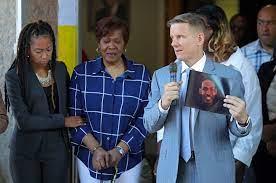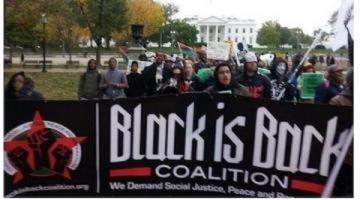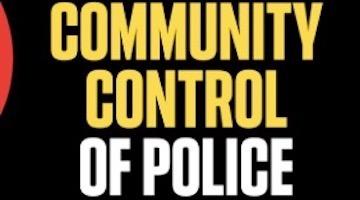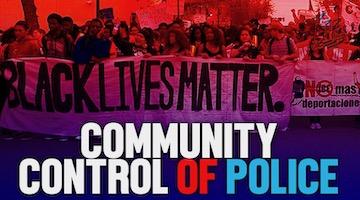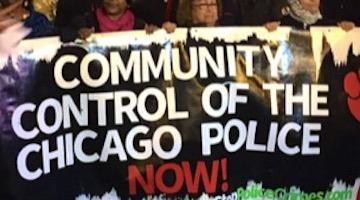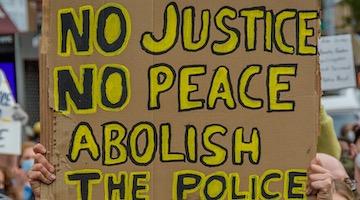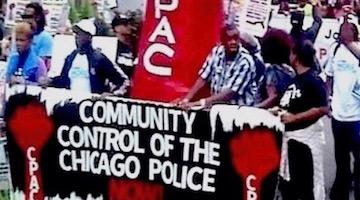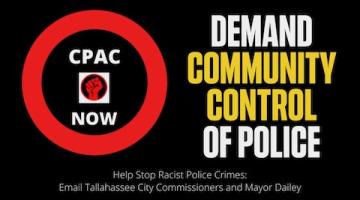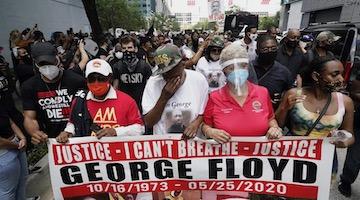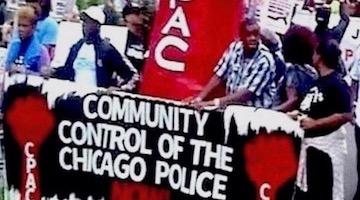Community Control Vs. Defunding the Police: A Critical Analysis
Defunding the police might end the armed and uniformed force as we know it, but the ruling class will then hire mercenaries to protect their wealth and enforce their will.
The police are a consequence of wealth, not the cause of it.”
The intensity and scope of the mass rebellion that has gripped the U.S. and expanded internationally has shaken global white supremacist capitalist patriarchy to its knees. The people have tasted a real sense of their own power and as a result some very unexpected developments have emerged.
Among them is the demand to “defund the police,” which is even being acknowledged by some lawmakers in a few jurisdictions. To be clear, this is a momentous development for the movement.
Supporters often advance two primary arguments: the first is that defunding is a necessary step towards the ultimate goal of abolishing the police altogether. The second argument is that defunding will deny the classist, white supremacist and patriarchal power structure the ability to target and incarcerate Black and brown people.
We understand the intent of these arguments. It is also undeniable that policing in the US is out of control and outrageously overfunded. Since 1977 crime has continued to fall, but police budgets have almost tripled to a staggering $115 billion per year. Even cutting police budgets by 50% would maintain the status of the United States as a police state, while dropping it from the greatest incarcerator in the world to just one of the greatest. Even in the context of reform, slashing police budgets is a perfectly reasonable solution to any number of social ills.
Does defunding lead to abolition?
However, defunding the police today would not lead to the abolition of police tomorrow.
While we spend far more time detailing this position in our upcoming book on Community Control Over Police, here we can summarize that anytime there is private property and wealth in a society, there will be a few with wealth and many more without. In those societies the police MUST exist in order to protect property and wealth from those who do not have.
When the original group of private property owners called an urgent meeting to discuss how to protect their wealth from all of the non-wealthy people who needed to eat the food the wealthy were hoarding, they realized the need for a force to protect them and their property.
At this point, the early human wealthy property owners became a clearly defined ruling class. While protection for the ruling class looks different today than it did in previous eras, the fundamental function of what we now call the police remains the same: to protect the interests and enforce the will of the ruling class. Class antagonisms, or tension between two or more classes, necessitates some form of police.
It is critical to understand the police as a consequence of wealth, not the cause of it. If police are the consequence of wealth then defunding will not abolish them, it will only compel the ruling class to reconstitute their protective force in a new formation.
Understanding the police as the protector of the ruling class leads us directly to the next argument.
Does defunding end the police?
Because class antagonisms necessitate some form of police, defunding what we now call ‘police’ might result in the demise of the armed and uniformed government force we have come to know, but it will not end the need of the ruling class to hire its own protective and enforcement force.
South Africa is a modern capitalist country that is mostly post-industrial and features pockets of development that mirror the wealthiest western nations. Yet, the government there does not spend anywhere near the amount of resources on police as the United States. So how do upscale malls, financial districts, wealthy white neighborhoods and other configurations of the ruling class protect themselves from the majority of residents living in poverty? They hire private security firms to enforce the rules of the establishment -- not the laws of the province or country.
Shortly after the Civil War, the US converted the roving squads of slave catchers into a public utility that we today recognize as modern police departments. The transition not only allowed the ruling class to reduce costs by pooling their resources, but eventually shifted the financial burden associated with protecting their wealth from their own payroll to all taxpayers.
“The wealthy hire private security firms to enforce the rules of the establishment -- not the laws of the province or country.”
However, the shift from private security to public utility created the contradiction that allowed civil rights organizations to fight for equal protection under the law, public transparency and other reforms. Of course, this did not end police brutality or alter the fundamental function of police as protectors of wealth and enforcers of the will of the ruling class, but turning the police into a public utility did provide some important tools necessary for the reduction of harm and heightening contradictions when those harms came.
When the police arm of government is shut down, the need for a protective and enforcement force for the ruling class will persist. The chambers of commerce, Walmarts and wealthy white enclave will not simply say “well, I guess there are no more police.” They will form their own force that is answerable only to them.
The new privatized police will not be confused for public servants, they will be overt and unambiguous mercenaries. As limited as the legal and public pressure options have been since 1865, the post-police options will be essentially non-existent.
Defunding the police will not abolish the police. Far from purging classism, racism and patriarchy from its ranks, defunding the police is likely to bring them back in their purest form and with a vengeance.
Most importantly, defunding the police does not shift power into the hands of Black working class communities, particularly women and LGBTQ folks.
Community Control Over Police: A Tool of the Oppressed
Pan-African Community Action (PACA) was founded in 2015 following the murder of Alonzo Smith by Washington, DC Special Police, private police hired by individual employers with all of the rights of regular police officers. However, because they are not employed by the state, Special Police are subject to far fewer responsibilities and are less accountable to the public at large.
PACA is organized under a set of Principles and Tools of Analysis that allow us to evaluate events and social phenomena. Two of the most relevant Tools of Analysis, at least for these purposes are:
- Black communities are a domestic colony. We are a colonized people inside of the United States and the police serve as the occupying army to enforce that colonial relationship.
- The core issue is POWER, not racism. We cannot change our reality by ending ‘racism,’ or the attitudes and opinions others hold of us. Our conditions will only change when we shift power into our own hands and exercise self-determination, thereby rendering the opinions of racists irrelevant.
PACA is intentional about the need to build campaigns rooted in the objective of shifting power to the Black working class masses, with a particular emphasis on empowering women and queer folk as a counterbalance to patriarchy. We define power as "The ability to implement or enact an idea, belief, will, opinion, plan or decision and the capacity to protect the outcome."
Applying these tools of analysis to the particular case of Alonzo Smith, and so many more before and since, PACA’s position became clear: we are not fighting to increase training for the police (presumably impacting their racist attitudes) or have them wear body cams so we can see them brutalize us before going unpunished, we are fighting for POWER over the forces that impact our lives, including the police.
As such, PACA started our own Community Control Over Police campaign and in 2019 we travelled to Chicago to participate in the founding meeting of the National Alliance Against Racists & Political Repression, which has launched a national campaign for Community Control Over Police.
We assert that Community Control Over Police must be the central demand of this moment, even as we embrace the possibility that this demand could give way for a revolutionary movement.
Max Rameau is a Haitian born Pan-African theorist, campaign strategist, author and organizer with Pan-African Community Action (PACA).
Netfa Freeman is on the Coordinating Committee of the Black Alliance for Peace and an organizer in Pan-African Community Action (PACA).
COMMENTS?
Please join the conversation on Black Agenda Report's Facebook page at http://facebook.com/blackagendareport
Or, you can comment by emailing us at comments@blackagendareport.com

